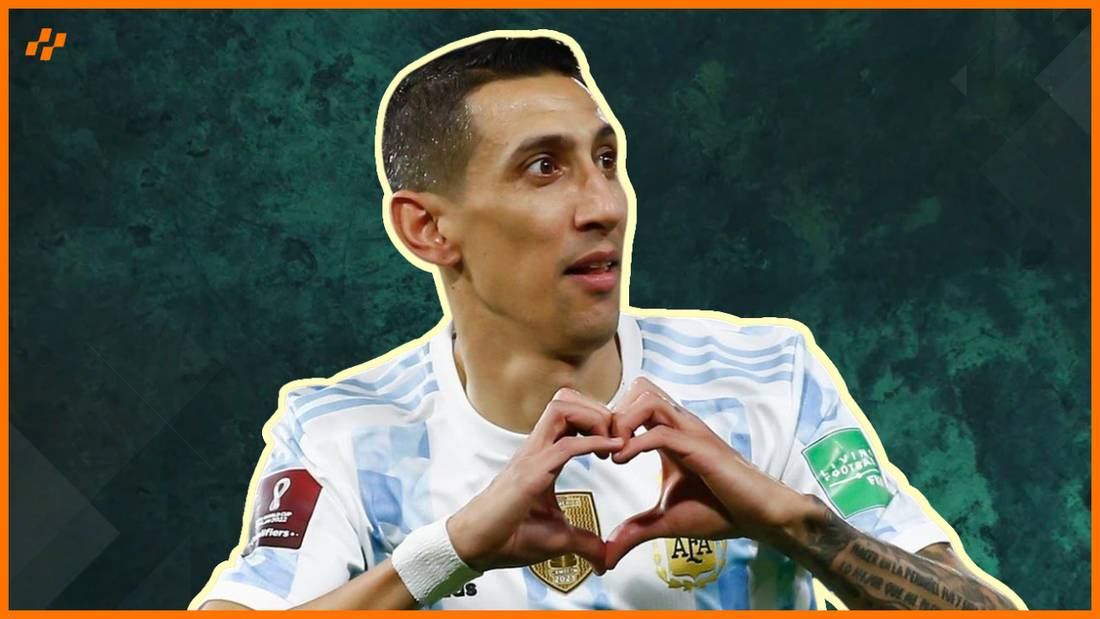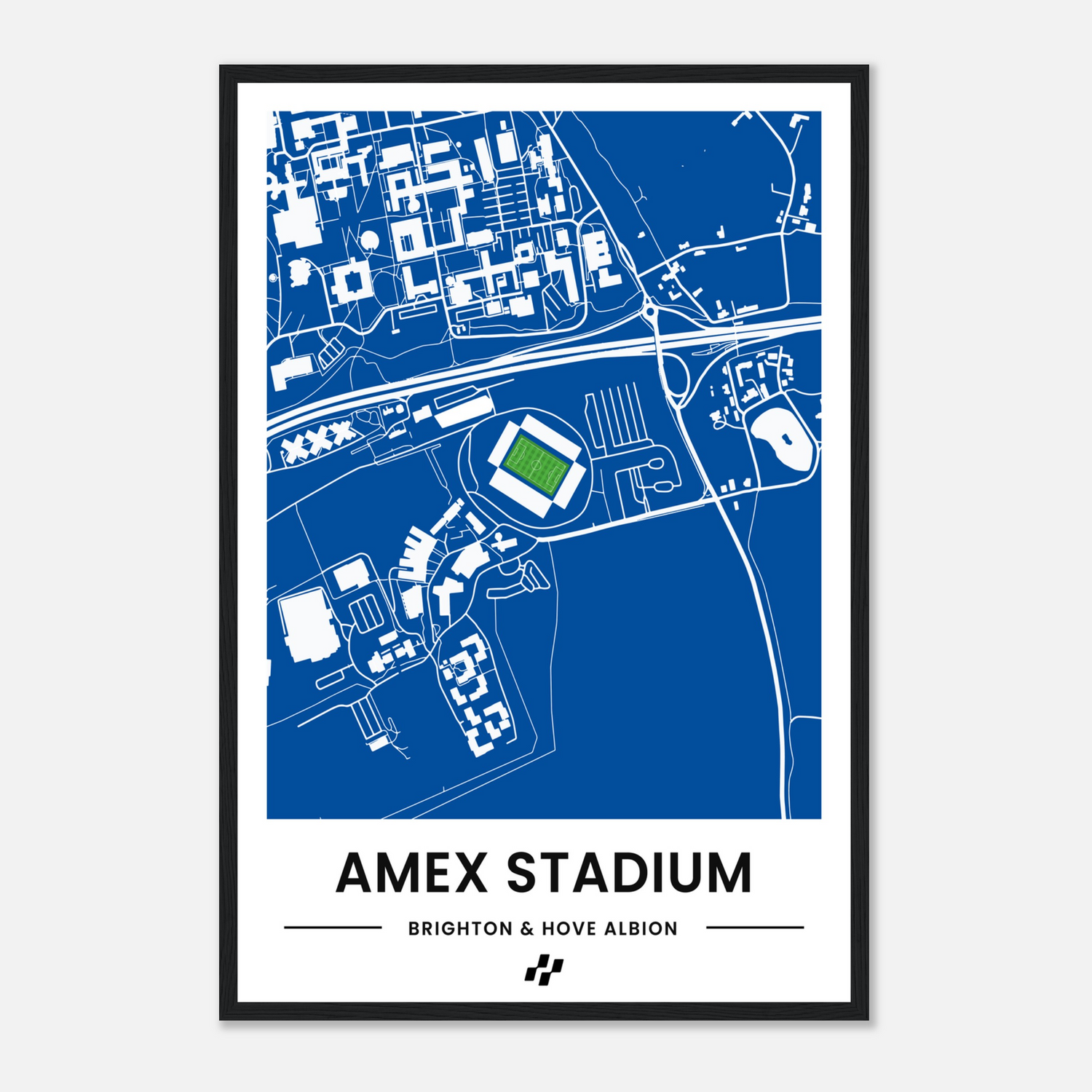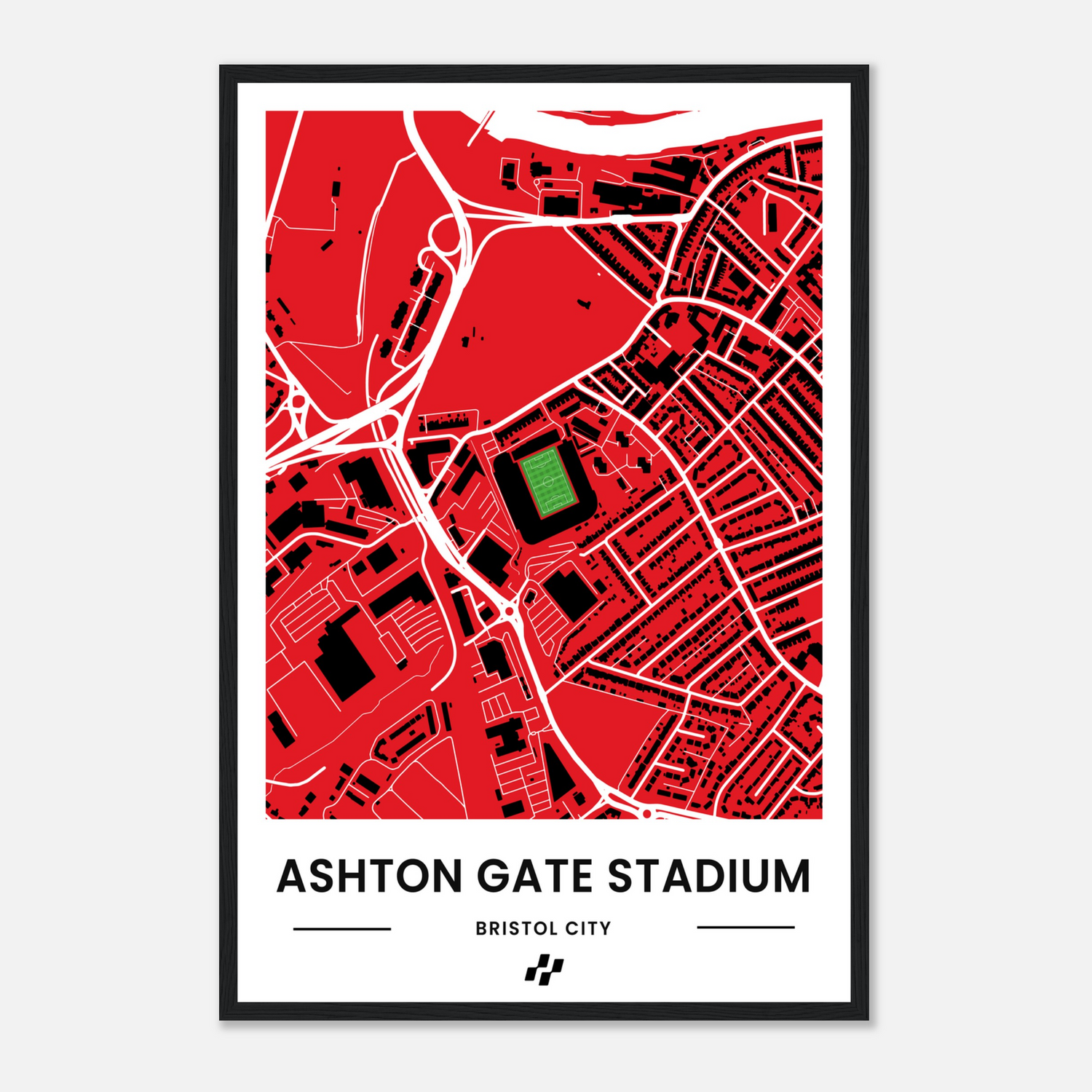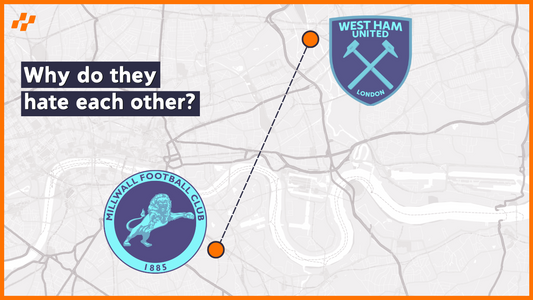
The Rise, Fall and Rise Again of Angel Di Maria
Share
Angel Di María is considered to be one of the greatest players of his generation and is up there as one of the greatest Argentine players of all time. But the story of Di Maria's rise to success is one of determination and perseverance in the face of adversity.
From the coal-dusted walls of his childhood home, to a string of injuries, to becoming a World Cup winner. The Underrated superstar has faced an uphill battle throughout his career. He is known for his impressive dribbling skills, precise passing ability, exceptional vision, and fantastic pace. Ranking fourth on the list of most assists in football history which just highlights his exceptional playmaking ability.
In this article, we'll take a look at Di Maria's incredible journey to become one of football's most remarkable players.
Click here to watch the full video on our YouTube channel
Early Life Struggles
Born into a family that struggled to make ends meet, Di Maria's childhood was marked by hardship and sacrifice. His father worked as a coal worker and would work from home so his father would carry coal throughout the house, turning the walls black with dust. To help support the family, Di Maria and his little sister would wake up before school to help their father bag the coal.
Before this Di Maria’s parents were doing well when he was a baby. However, his father's friend asked him for help to sign as a guarantor for his house. The guy ended up falling behind on his payments, and then he just disappeared one day. So the bank came after Di Maria’s father and was stuck trying to pay for two houses and feeding his family.
To make ends meet, Di Maria’s father tried turning their house into a little store. They sold bottles of cleaning products at a better price than stores. It was all going pretty good until one day, Di Maria ruined everything by almost getting himself killed.
Di Maria was a hyperactive child and with the front door open he went out without his parents knowing and almost got hit by a car when he walked out into the middle of the street. That was the last day of The Di Maria's Cleaning Shop. His mother told his father that it was too dangerous and to shut it down.
Despite the challenges, Di Maria remained optimistic and believed that things would get better. He found solace in football, which he started playing at a young age because he was driving his mother crazy. She actually took him to the doctor when he was four years old who recommended he play football to use up energy.
However, playing the sport was not always easy. Di Maria's family could not afford to buy him new boots, so his mother had to glue his old ones back together every two months.
The Rise
Di Maria's football talent soon began to show, and at the age of seven, he scored 64 goals for his neighbourhood team Torito. He received a phone call from the youth coach of Rosario Central, who wanted him to play for the team. However, with Rosario 9km away and no car to get him there, Di Maria's mum would take both him and his sister by bike to training every day.
At Rosario, Di Maria faced a new set of challenges. His coach preferred physical and aggressive players, which was the opposite of his style of play. One day, after not jumping up for a header in the box, the coach berated Di Maria in front of all his teammates, calling him a "wussy" and a "disgrace." Devastated, Di Maria almost quit football, but his mother encouraged him to go back and prove himself to the coach.
Di María continued to make progress and made his professional debut on 14 December 2005 in Rosario's final fixture of the Apertura, a 2–2 draw away to Independiente.
After taking part for Argentina in the under-20 FIFA World Cup, Boca Juniors approached to sign him for $6.5 million, he was also approached by Arsenal, but negotiation broke down due to the strict ‘European Union’ laws around work permits to players from outside the Union.
In July 2007, he officially joined Portuguese side Benfica. Diego Maradona praised his skills and said that he was “Argentina's next superstar.” Not a bad compliment from one of the world’s greatest footballers.
After an unsettled start being a regular on the bench under managers José Camacho and Quique Sánchez Flores, Jorge Jesus arrived at the club and gave Di Maria more regular opportunities. Playing on the right, the Argentine was able to showcase his precise dribbling, his dynamite left foot and his ability to pull off the sublime.
Di Maria continued to shine at Benfica and scored his first hat-trick in a 4–0 win against Leixões. The next day, he made the headlines as "Magic Tri María" in all newspapers in Portugal.
He helped Benfica win the Primeira Liga, the club's first league title in five years in the 2009/10, and two Taça da Liga titles.
Real Madrid Superstar
Real Madrid signed Di Maria to a five-year contract worth €25 million plus €11 million in add-ons on June 28, 2010.
At the time, Real Madrid's sporting director Jorge Valdano promised Di Maria a rise sooner rather than later, and everything seemed to be going as planned when Di Maria finished his first season with nine goals and 26 assists and a Copa del Rey winner's medal. However, no new contract was signed before the 2011/12 season, and the winger suffered a number of problematic muscle injuries, sparking a rift between coach Jose Mourinho and the Madrid medical staff.
Di Maria eventually broke with the club physios and entrusted Cristiano Ronaldo's preferred personal trainer Joaquin Juan. Real Madrid went on to win their 32nd league title, clinching the title with a 3-0 win over Athletic Bilbao.
In the 2012–13 season, The Argentine avoided major injuries and played 52 times, scoring nine and assisting 7. Mourinho had great faith in Di Maria, as did Ronaldo, resulting in a strong partnership with the Portuguese forward at the top of his game.The following summer, Carlo Ancelotti arrived with Gareth Bale in tow, posing a direct threat to Di Maria's place in the team, eventually finding himself moved to a central position from which he thrived alongside Luka Modric and Xabi Alonso in the team's 4-3-3 formation.
Real Madrid advanced to the 2014 UEFA Champions League Final against rivals Atlético Madrid on 24th May 2014. Di María dribbled past two players before forcing a save from goalkeeper Thibaut Courtois with Gareth Bale there to head the rebound into the net in the 110th minute, giving Real Madrid a 2–1 lead in an eventual 4–1 win. Di María was named man of the match by UEFA after the match, and was presented with the award by former Manchester United head coach Sir Alex Ferguson. Di Mara had the most assists in La Liga in the 2013-14 season, with 17.
Manchester United threw everything behind signing Di Maria just as James Rodriguez moved to Los Blancos, Although speaking to Argentine radio station America afterwards Di Maria said “I never wanted to leave Madrid, Cristiano always supported me to stay,” “Selling me was very good for Madrid to recover all they had spent.”.
Di Maria spent four years at Real Madrid, making 190 appearances and scoring 36 goals with 85 assists in all competitions.
The Fall at Manchester United
Di Maria's transfer to Manchester United in the summer of 2014 was met with great excitement among the club's supporters. The Argentine winger was coming off a fantastic season with Real Madrid. He inherited the number 7 shirt, which was previously worn by club legends such as George Best, Bryan Robson, Eric Cantona, David Beckham and Cristiano Ronaldo. However, his time at Old Trafford proved to be short-lived and ultimately unsuccessful.
The club was in a period of transition, with legendary manager Sir Alex Ferguson retiring and the club struggling to adjust to the new regime under David Moyes.
The Argentine's technical abilities should have suited new manager Louis van Gaal's possession-based style of play. And, despite having a strong start to the season, winning Manchester United's Player of the Month award for September after scoring two goals and providing two assists in his first four games for the club. His performances were inconsistent, and he struggled to adjust to the Premier League's physicality. He also had a series of injuries that limited his playing time.
Di Maria's personal problems were another factor that contributed to his failure at United. Di Maria's family struggled to settle in Manchester, and the player reportedly struggled to adapt to English culture. He was also the victim of a home burglary, which understandably affected his mental state.
Van Gaal tried to use the Argentine in a variety of positions, from winger to central midfielder and striker, but he never seemed to settle in one particular role. At the end of the season, Di María was judged by The Daily Telegraph to be the worst signing of the season.
The Rise Again at PSG
Di Mara failed to board a flight to the United States to join Manchester United's pre-season tour on July 25, 2015. PSG offered him the opportunity to escape Louis van Gaal's clutches, which he eagerly accepted. The most expensive British transfer of all-time forgotten in 12 months.
Angel Di Maria's move to PSG in the summer of 2015 was seen by many as a fresh start for the Argentine winger. He signed a four-year contract with the Qatar backed French giants for an undisclosed fee, believed to be around €63 million. Di Maria was given a starting spot in PSG's attacking lineup and quickly established himself as one of the club's most important players.
Di Maria scored 15 goals and provided 27 assists in all competitions in his first season at PSG, helping the team win the domestic treble. He was a key player in the team's attacking play, and his ability to create chances for his teammates was unmatched in Ligue 1. His performances earned him a place in the league's Team of the Year, and he was also named the club's Player of the Year.
Di Maria continued his impressive form in the following seasons, helping PSG win a number of domestic titles and reach the latter stages of the Champions League. He formed a deadly attacking trio with Kylian Mbappe and Neymar, and his ability to play in multiple positions made him a valuable asset for the team. Despite suffering a few injuries and personal setbacks, Di Maria remained one of PSG's most consistent and reliable performers. He ended his spell at PSG with 92 goals and 112 assists in 295 matches. Di María won five league titles, five Coupe de France and four Coupe de la Ligue, which includes three domestic quadruples. He is also the club's ninth-highest goalscorer and all-time leader in assists.
He joined Italian side Juventus for free in the summer of 2022, before returning to Benfica in 2023.
World Cup 2022
Ahead of the 2022 World Cup, the 34-year-old was having a difficult season due to injuries and a terrifying robbery, his third in three different cities, in which his family was held hostage in a raid on his Turin home in October 2022. He only played 10 times for Juventus and doubts were cast over his availability for the World Cup.
Despite this, Di María was named in the final squad for the 2022 FIFA World Cup in Qatar. Di Maria recorded an assist on Messi's opening goal in Argentina's second group match, a 2–0 win over Mexico. Following this the Juventus attacker's form was poor and had only played eight minutes in the knock-outs after his country narrowly squeaked through their group, but Argentina manager Lionel Scaloni knew what he was doing by bringing him back into the team for the final.
It was only last year that the winger scored the previous biggest goal of his career, the match-winner to beat Brazil in the Copa America to give Argentina their joint record 15th Copa América title with Uruguay and their first international title since 1993.
Di Maria started the 2022 World Cup final against France, he was surprised by the coach's decision to start him on the left and thought Scaloni was "confused," but Scaloni convinced Di Maria of the game plan with him specifically on the left.
Di María scored his team's second goal, minutes after winning the penalty for the first goal as Argentina defeated France 4–2 on penalties, after the match ended 3–3 in extra-time, to win the World Cup.





